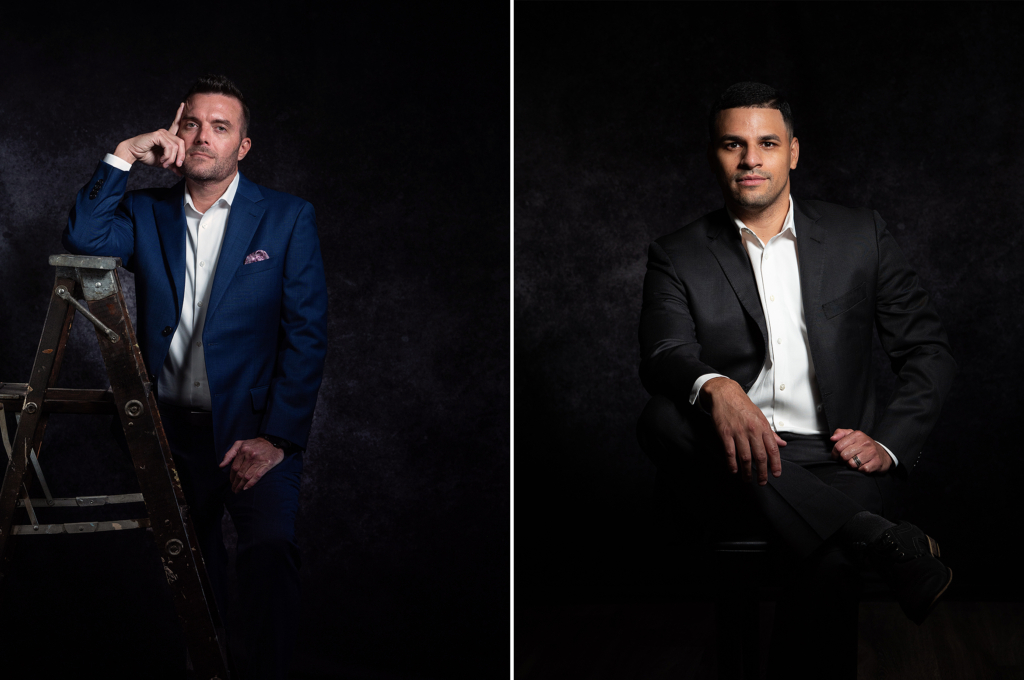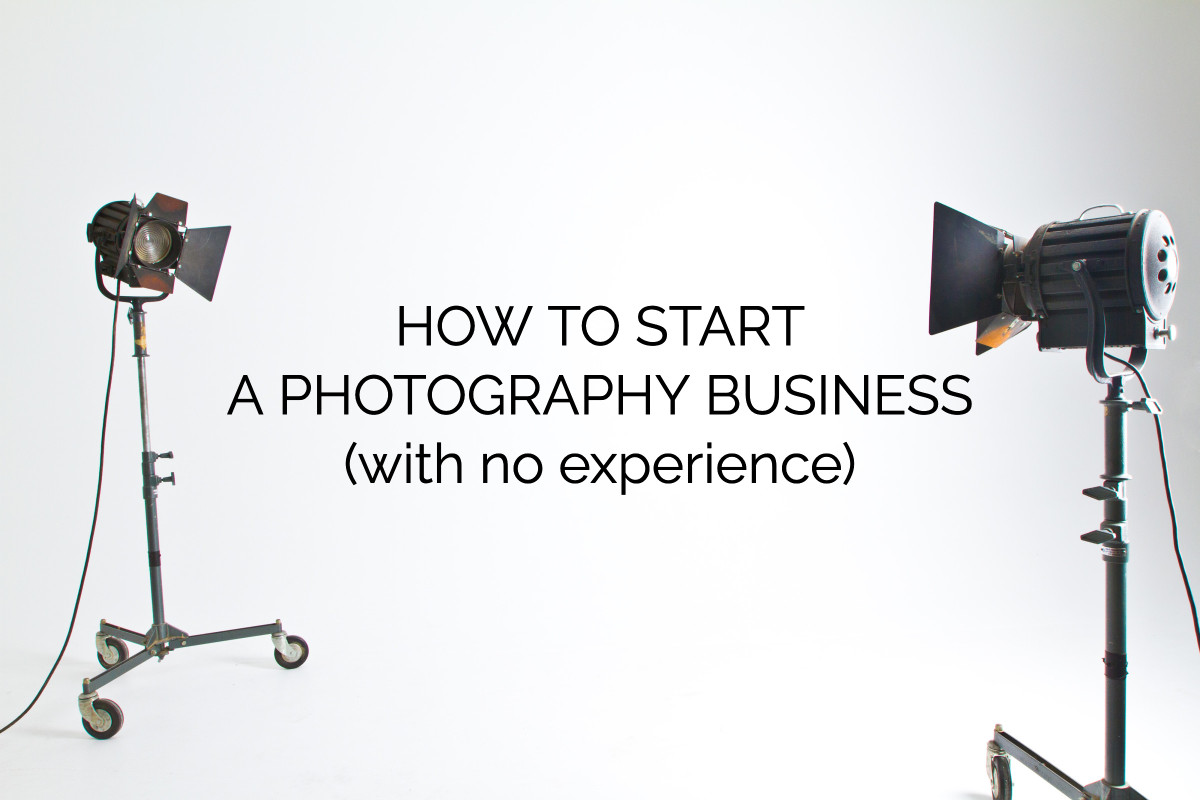We’ve all heard that statistic that 80% of businesses fail within their first year, I’d say that percentage rises even higher for photographers.
It’s just the sad truth of the industry that many families own a DSLR, and are happy with good enough because they haven’t seen, or don’t need extraordinary. As a marketing consultant, I’ve worked with many businesses who don’t need to hire for headshots, when Bob in accounting has a DSLR. I’ve worked high profile events where a headshot was sent in last minute via their iPhone.
Students and hobbyists alike always ask, “Should I become a professional photographer?”
“Sure it’s a great way to make hundreds of dollars,” Chase Jarvis, successful photographer and founder of Creative Live half jokingly responds.
Today, with the proliferation of social media and apps like Instagram that allow you to share your photos with the world, there’s a growing subset of photographers who would love to monetize their passion. And to do that, you should narrow down your focus…
The #1 Tip to Starting Your Photography Business Is Finding Your Niche
You’ve got a camera and a passion for photography, and your friends all say you should consider going into business; but don’t quit your day job, just yet. The photography business requires more than a good camera and an artistic eye. Your technical proficiency as a photographer is certainly an asset, but it comes a distant second to entrepreneurial skill. To succeed in the photography business, you need to learn how to promote your services, maintain accurate financial records, manage your time effectively, and prepare yourself to work long hours for little pay while you build your reputation as a professional photographer. Photography is a fiercely competitive business; even more so since the advent of affordable professional grade digital cameras; and once you make the decision to start a photography business, you may discover that the business takes up more of your time than the photography.
For the first few years I focused on headshots. This was, and still is my bread and butter. Your main portfolio on the home page of your website should reflect that. When I moved to Maui, I started to focus primarily on family photos, engagements and elopements because that’s where the demand was.
But after a lot of demand, I added in product and food photography, sprinkle in a few fun events and a little bit of real estate photography.
When I lived in Las Vegas, the clear path to money for aspiring photographers is clearly wedding photography, as we are the wedding capital of the world. But a lot of photographers have mixed feelings about shooting weddings, and without a question you’ll be losing a lot of weekends. Something I’m not really willing to give up. Shooting mainly headshots and product photography allows me to shoot on my own schedule.
But that was a personal preference of mine, you’ll have to find what yours are – and the only way you can is by starting!
Update: 6/20/2021 – We’re now moving to Maui and I’ve decided to add-in elopements, small weddings and underwater photography.

Black background portraits with powerful men
If you’re still interested in taking the next step to becoming a professional photographer, here are a few things to consider.
Photography is not a one-size-fits-all profession. The skills required for a successful wedding photography business do not necessarily result in success as a fine art photographer or photojournalist, and vice versa. Different fields of photography require different shooting styles, equipment, proficiencies, and attributes; and few photographers find success in multiple fields. Before you start a photography business, you need to determine which field of photography suits your personality and aspirations.
Advertising companies use commercial photographers to produce images of their clients’ products or services. A few large firms have staff photographers, but most use independent contractors. A successful commercial photographer must understand the advertising business, know how to write successful bids for work, and deliver images that match a client’s specific requests, or a job’s specific requirements. Although creativity is important, the bulk of a commercial photographer’s work involves reproducing stuff that have been planned or selected by the agency’s art director at the client’s behest. Under the branch of commercial photography is also stock photography, the advent of companies like iStockPhoto have allowed ad agencies and businesses to obtain photos at a fraction of the cost. Real estate photographers could also fall under this branch, because realtors need great images of the exterior and interior of homes to be able to sell them a lot easier.
Event photographers provide their customers with memorable images of important occasions, like weddings, graduations, and corporate events. Event photographers frequently work at night and indoors–where familiarity with lighting techniques is absolutely vital. Wedding photographers who work for franchise operations earn a little over minimum wage, while successful independent wedding photographers can earn substantially more–but those earnings are mitigated by the costs of equipment, promotion, and travel and insurance expenses. Keep in mind, too, that event photographers bear a considerable amount of responsibility compared to photographers in other fields. Wedding photographers, for example, are trusted with the responsibility of producing memorable shots of the most important day in a young couple’s life; and, if anything goes wrong, there’s no chance for a re-shoot.
Like news photographers, sports photographers must have a good eye for compelling images, and fast shooting style to capture clear images of athletes at sporting events. Furthermore, sports photographers must enjoy sports, and understand the culture of the sports they cover to know what shots are most desirable. Sports photography requires a significant investment in time and equipment. Since the photographers at sporting events are relegated to the sidelines, they need long telephoto lenses with wide maximum apertures and fast and accurate autofocus capabilities. Enthusiasts interested in a career in sports photography can hone their skills by attending amateur or junior league sporting events.
Similar to sports photography, nature photography requires a long lens and a fast shooting style; but it also requires patience. While a sporting event offers photographers countless opportunities to capture athletes in action, nature photographers must be willing to wait patiently in all kinds of weather for a compelling image to present itself–often only for a brief instant. An advanced understanding of wildlife habitats and behaviors is a must, too.
Portrait and fashion photographers work either in a studio or on location to capture images of their subjects. An advanced understanding of lighting is necessary to produce consistently powerful images. Although many portrait photographers work with natural light, an enthusiast who hasn’t yet mastered flash photography should make it a priority to do so, before embarking on a career in portraiture or fashion photography. Portraiture is probably the easiest to build a business off of because everyone needs family pictures, every senior in high school needs senior pictures and most people want professional pictures of their newborn. And we haven’t even jumped into the world of business, where in a digital age, everyone needs a good headshot for social media platforms. Corporate headshots can often convey the image of your company.
Fine art photographers produce images suitable for decorating a restaurant or home, or hanging in an art gallery. Owing to the proliferation of cheap digital cameras and camera-equipped smartphones, fine art photography may be the most saturated of all professional fields; and, therefore, the least likely to yield a steady income. Therefore, fine art photographers must be willing to promote themselves aggressively.
Editorial or news photographers supply images to accompany stories in newspapers, magazines, and television broadcasts. Perhaps starting your business sounds a little risky, well most media outlets have salaried photographers on their staff, to accompany their journalists on assignments; while some solicit work from freelancers. Editorial photographers must be available at a moment’s notice to capture breaking news, and be able to tell newsworthy stories with a few well chosen images. Good editorial or news photographers are usually good street photographers. Owing to the objective nature of journalism, news editors almost never have the opportunity to stage their shots, so they must have a keen eye and a fast shooting style to capture news as it happens.
#2 – Build Your Portfolio
If you’ve settled on a field of photography that suits your interests and aspirations, it’s time to start developing a body of work that showcases your abilities to potential clients or buyers. Your photography portfolio should only include your best work, and be presented in a professional manner. If you want a customer to pay you for your work, you must be ready to show that your work is worth buying. Don’t skimp on your portfolio; you may even want to consider paying to have it reviewed by a professional.
The Internet has made it easy and inexpensive to create online portfolios; but that means that you must take extra care to ensure that your portfolio stands out from the rest of the pack. That means putting together a professional website, and learning search engine optimization (SEO) to improve your exposure. Your Tumblr or Facebook page will not suffice, no matter how many ‘Likes’ your pictures get.
Join the club
If you can’t afford a professional portfolio review, look into the photography clubs in your area. Many offer monthly portfolio critiques, in addition to classes, lectures, and equipment rentals; and they’re an excellent resource for meeting other photographers, learning new techniques, or even getting work as a photography assistant or second shooter. These opportunities can help you learn more about the business of photography, while providing you with valuable professional connections for your own business. Alternatively, there are many online forums and communities that provide critiques and feedback.
Remember: It’s a business
The biggest challenge to starting a photography business is accepting that your hobby is now your business, and must be run accordingly, if you hope to have any success. Passion and technique, alone, don’t always lead to success. There are plenty of mediocre photographers out there with successful businesses; but, if you don’t know how to market your brand, manage your assets, and deliver your work on time and to the customer’s satisfaction, it won’t matter how skilled a photographer you are. Photography is a creative, artistic pursuit, and though the mundane reality of business ownership may seem odious, it cannot be overlooked. Some things to keep in mind, the, are:
What kind of business will yours be? Sole proprietorship? Partnership? Limited Liability Company? Depending on how you set up your business, and in which state you operate, different laws will apply. How you set up your business determines how much tax you pay, what you can write off as a business expense, the amount of paperwork you do, and what your legal and financial liabilities are in the event of a lawsuit.
Don’t expect customers to find you. Determine who your ideal client is, and develop a marketing strategy to target that kind of client. Want to shoot children’s portraits? Advertise near schools, or in publications that cater to parents. Want to sell your pictures as fine art? Approach local art galleries, coffee shops, or restaurants to see if they might be interested in displaying your work. Do whatever it takes to get your work seen by potential buyers.
Decide on a method of delivery. Some photographers sell work through print-on-demand services like RedBubble or FotoMoto. They simply take the pictures, and allow customers to go online and buy the ones that they like. Of course, these services take a pretty big cut; and, if anything goes wrong with the product or the delivery, you can be sure that you’ll be the one that bears the blame. If you’re not comfortable with that arrangement, invest in a dedicated photo printer, and plan on printing and shipping your orders yourself. If you plan to sell your work as art, you may also want to invest in a mounting press and matte cutter. It’s more work, but you’ll have more control over the end product, and realize a higher profit margin.
Keeping accurate financial records of your business’s expenses, income, assets, and liabilities is absolutely essential for success. If you can’t afford to hire an accountant to do the work for you, familiarize yourself with business-oriented accounting software. Since you must report all income on your tax returns, keeping accurate records will save you time and money come tax time.
Insure your equipment (i.e. cameras, lighting equipment, studio, printer, etc.). If any of these items are stolen, you’ll need to replace them as soon as possible, or risk losing business.
In addition to insurance for your equipment, you should also get liability and indemnity insurance for your business. Any accident that results in injury to a client, or damage to a client’s property, can be disastrous in the event that s/he files suit.
Don’t let the business spoil the fun
Don’t let yourself be too intimidated. Although it is true that successful photographers in each professional field have spent years developing their businesses (not to mention thousands of dollars in equipment) to improve their chances of success; with a little creativity, you can find your niche in just about any field. Find your area of interest, and develop an aesthetic style and shooting technique that distinguishes you from the rest of the crowd; or, find a field of photography that is underrepresented in your market, and turn it into a business. Start out small, taking the work you can get and putting your own personal spin on it, and gradually build your reputation and brand. Your progress may seem slow, at first; but with time, patience, and dedication, you can succeed.
It’s easy to look at all of the hassles associated with business ownership and give up on your dream of making a career out of your passion. Or worse: start the business, and begin to resent the activity that once brought you such joy. While it’s true that good business sense and a strong entrepreneurial spirit are often more important than technical proficiency when running a photography business; that doesn’t mean it can’t still be fun. As a photographer, creativity and passion are your most important skills. If you can apply them to the business side of your venture, you’ll increase your chances of success.
Good luck.
I’ll be working on a step-by-step course for the aspiring professional, stay-at-home mom, college student, hobbyist photographer and everything in between.
After working with a few photographers, I realized that there’s a systematic way to start earning $1000 a month as a photographer. And utilizing my experience as a marketing consultant, I plan to create a course and blog about my experience running a photography business on the side these next few months.
Do something you love and start earning $1000 a month – and more.
For me, I don’t want photography to feel like a job. I want to be able to select the projects I want to work on, work with people I want to work with and love every minute of it. I have other projects going on so for me, my personal goal is to take it to $1000/mo and then take my skill to the next level where I can attract higher paying clients. I’ll state right now that I’m not the best photographer. I’ll never tell you that I am. I believe photography is an art that takes a day to learn and a lifetime to master. A month doesn’t go by where I haven’t said to myself, “You’re not good enough.” For me, it’s a process and this blog will be a record of that.
If you’re a seasoned pro, this blog could help you evaluate different marketing channels – as I’ll be testing many of them.
For others, it could be perfect for someone with a full time job who wants to do a little photography on the side. Perhaps to fill his desire that many photographers have – a lust for new gear.



I think that a cut-and-dry reality that many aspiring photographers do not entirely comprehend is just how challenging it can be trying to break into the field. Not only it is tough to gain brand recognition and secure your first couple of serious gigs, but it also takes a whole bunch of an investment in order to buy all of the equipment you’ll need to ensure you get quality pictures. Owning an expensive camera is not going to be enough going to cut it: you will also need to spring for a myriad of lenses, flashes, a backup camera, and plenty of extra batteries and memory devices to be ready for pretty much any emergency. Plus, plan to be coughing up for extra storage devices to backup your files on. This often requires a lot of money to spend before you actually get your photography business up and functional. Sure, you can always rent equipment at first, and this can help for a little while, but if you’re actually serious about photography – especially focusing on shooting weddings and other events – you are going to need to make a serious investment at some point.